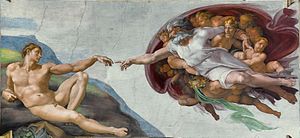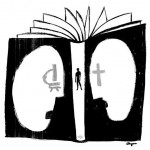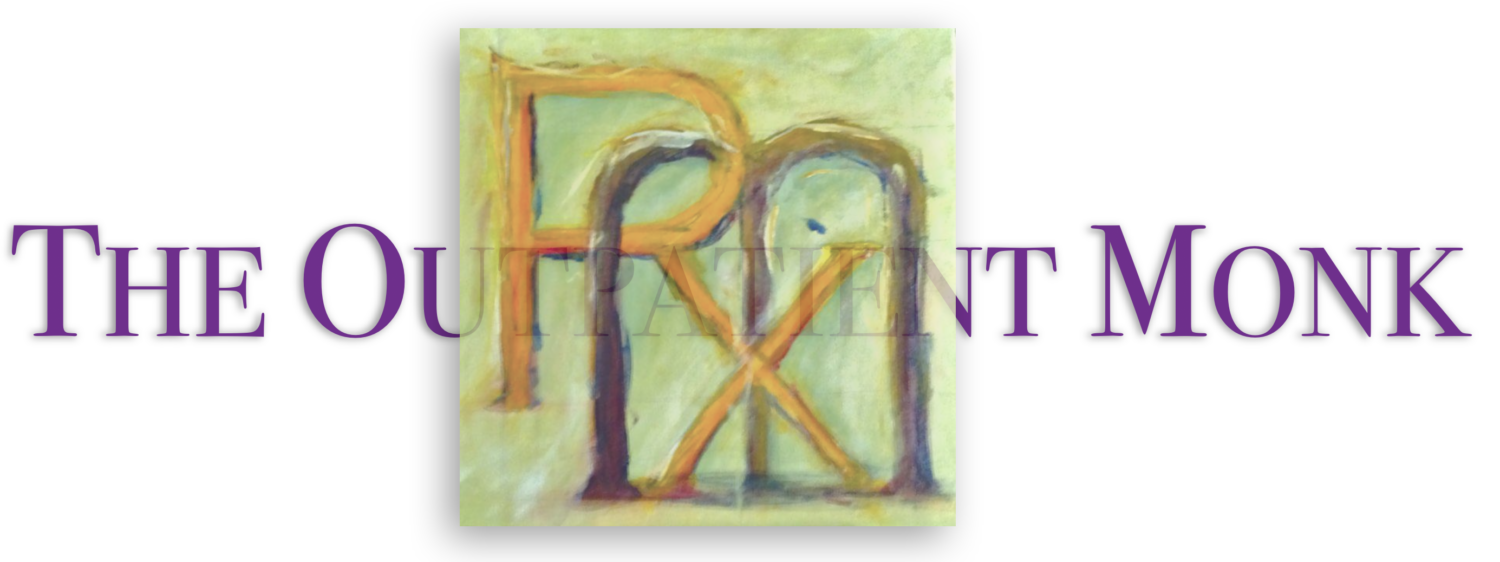Last updated on May 1, 2012

We live in a moment in history in which truth is only found in this fairly new thing we reinvented called a ‘fact.’ “This is a table,” we say. It is a fact that the thing I just set my cup on is a “table.” Ta-da! End of story… It is an idea that seems pretty hard to argue with until all of a sudden I take that same table apart and plan to build a flower bed out of it. Fairly quickly it becomes lumber. So it is now not a table after all. Er… right? That is the case until I decide without making any changes to the pile, to burn it in a fire. Without moving an inch, by mere planning in my head, it becomes fuel. This pile of wood is fuel for my fire, end of story. …Or perhpas this is where the importance of ‘story’ just begins.
As it happens a lot of what people call facts are not entirely understood by what is found at close examination, but by their place in some kind of story. Things are what they are, not just in the make-up of their atoms but in what those atoms do with other atoms over time.
Perhaps this is a little philosophical idea that is worth quibbling about, but at minimum it pries open a little window into to bigger notions of truth. How do I prove as a fact that my parents have loved me?** Can it be just that they paid for college? Is it because they fed me or rocked me as a baby. Each piece can be explained away by a whole stock of speculations. But strung together as a story, a light begins to dawn on the whole. There is a pattern of desires, faith, and hope that over time (and not just in a single moment) bends out imaginations to believe there is is love here. That story of love is a sustainable one. It is one which we can acts as if it is the case.
The good news, the great news, here is that I am not merely the sum of my parts. I am part of an ongoing story and that the story’s plot is always subject to change. I am not just my atoms pushing me around. There is a complex playground of atoms, the stories my parents read to me, pheromones, memories, imagination, unhealthy cells, violence, chemistry, fire and forgiveness.
Now the questions is, “what makes a good story and how would we know?” For Plato it would also have to be both beautiful and good as well. Ah. There is the rub. We have been asking science to tell us if some stories are true. But it fails us when we ask science to tell us which stories are beautiful and good. It is a three legged stool that can’t work without each leg.
I live in a story that is trying to be retold in a manner of different ways, to be sure. Some people, for example, are putting a lot of energy into proving that the creation story of Genesis is a certain kind of historical truth. It is as if the main point of the story is to be presented as an irrefutable fact.
 That is one approach to truth that wedges itself right under the heavy thumb of science in a way that misses the kind of truth that holds hands with beauty and goodness. That account of creation would stand on its own without us having, or perhaps even wanting, to understand why it was made, or what to do with it next. That story would tell us nothing about the character of God, unless God is something just like a big bang. That story has a hard time bringing more beauty to the world.
That is one approach to truth that wedges itself right under the heavy thumb of science in a way that misses the kind of truth that holds hands with beauty and goodness. That account of creation would stand on its own without us having, or perhaps even wanting, to understand why it was made, or what to do with it next. That story would tell us nothing about the character of God, unless God is something just like a big bang. That story has a hard time bringing more beauty to the world.
But the story has been told for centuries in a way that is jaw dropping and compelling. Like any story is has to be told well – which is an art form. It takes practice but it is the kind of story that can be, has been, and has made an entire world of difference. It is not irrefutable by science, it is not the most obvious story. But it is good, it is beautiful, and its truth is something that can be seen over time like the love of one’s parents.
Part of the very beauty of the story is that it says history is not merely a string of random facts, or at least it does not have to be. The Story is bigger than science. No single shift of tectonic plates or morphing of a cell can claim its own finality. More story can always yet be told.
It doesn’t disregard those things as not important to faith. Instead it pulls them together and asks things of those of us within the story, to make something beautiful where beauty is impossible to find.
I am in no way suggesting that the story tells us we can talk ourselves out of gravity. I am, however, saying that I have seen some trapeze artists learn to do some beautiful things with what gravity has given them. History is full of humans who, by the force of their ability to live good stories, by their uncanny gift of being able to write beauty using only ashes, have changed a tide of human lives for the better. The opposite, of course, can also be said.
That is why I want to be part of a good story. I want to be part of it and I want to tell it well. I want to tell a good story well using all of the atoms and chemicals and organs and hormones and muscles and structures and technology and art and wisdom and innovation and computer chips and rockets and hugs and diapers and all of the things humans have the ability to move.
We can take these things. You and I can take these things and use them to retell the story. We can arrange atoms in away that move us and each other. We can push physics in a way that heals. We can bend light to open mysteries. We can write the beauty of the earth onto itself.
And perhaps then it is beauty that will save the earth. That, according to what I have been told, is the end of the story. That is a story I am trying hard to retell faithfully with my life. That is a story I am willing to bet my life on.


Stories. I believe that they feed the mind and spirit much like food feeds the body. They are nourishment. We need them.